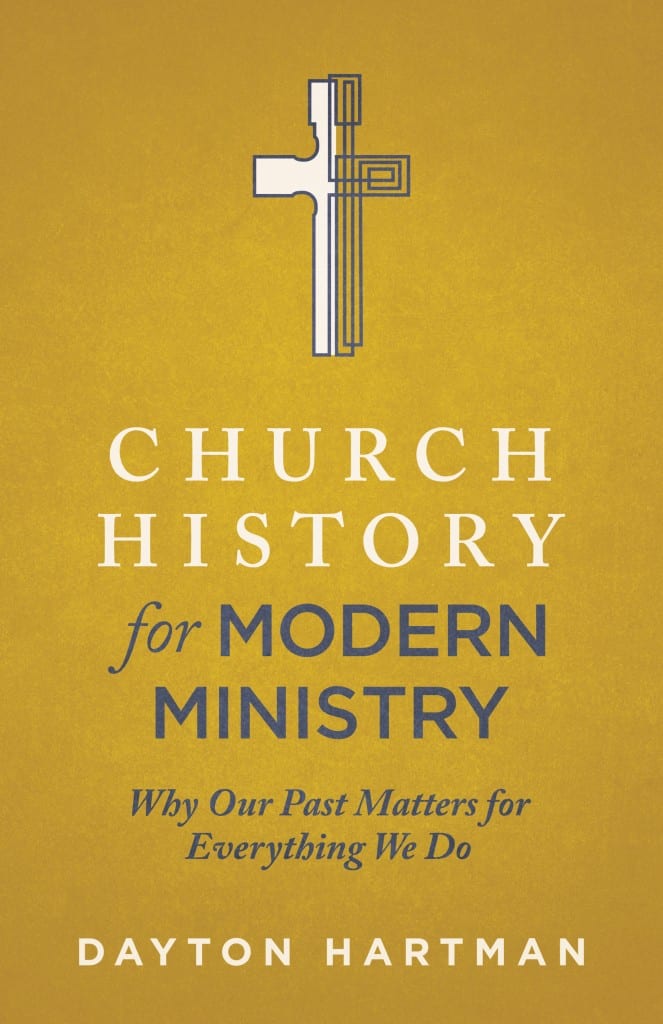⏱️ Estimated Reading Time: 4 min read
Outside of the handful of folks that love spending their free time cracking open a biography of a famous President or reading about various culture movements of previous centuries, it is probably safe to say most people find studying history, especially for “fun,” a bit daunting. Thousands of years of thoughts, opinions, events, and tens of thousands of commentaries on those happenings in the present day, make studying history an often overwhelming task that we often neglect too much. When applied to the Church and its understanding of church history, little changes. In fact, Christians are probably more inept about the history of the Church and our religion than most students are of our cultural and political history. With 2000 years of church polity and theologians and events staring us in the face, how do we begin to incorporate church history into what we know, and further, what we do in the present day?
Dayton Hartman’s book Church History for Modern Ministry is an excellent primer that seeks to help us think through how to go about this massive undertaking. It’s a very short book, only 112 pages total, which should deeply encourage the reader, especially someone who feels a bit overwhelmed by the 2 and 3-volume sets of church history surveys that are out there. This book aims to show how church history helps improve or solve some of the dilemmas we face today in modern ministry. Stalemate discipleship? Let’s consult historical practices. Doctrinal illiteracy? We should examine the creeds. Aspiring to preach and teach? Let’s follow the example set before us. The truth is, church history in so many ways should inform and shape how we do all of our ministries today, from preaching to worship to evangelism. Hartman, a Ph.D. in Church and Dogma History, is a fit candidate to help us explore these themes and more.
Here are a few great “sound bites” from the book.
“Why [do heresies abound among Christians]? The problem is twofold. First, epidemically high percentages of the evangelical church are biblically illiterate. Second, many pastors are tragically unaware of past heresies. It might be cliché, but it’s true for the local church: Those who fail to learn from history are doomed to repeat it.” (15)
“The first preachers of Scripture recognized the need for rational argumentation, culturally relevant appeals to logic and reason, and apologetics. In an increasingly hostile culture, this kind of proclamation becomes ever more important.” (39)
“It is madness to lament the failure of your church to produce healthy disciples, unless you are willing to explore and to use the practices and methods of discipleship that have yielded great success for nearly two millennia.” (57)
Pastors will find Church History for Modern Ministry especially helpful because this is a book that takes the time to address the pastor directly, calling him to action, giving him actionable steps to immerse himself, and his church body in church history. Each chapter ends with four summary sections:
“Dear Pastor”
“Action Steps“
“Reflection Questions”
“Recommended Reading”
These sections help the pastor assimilate this material into the life and culture of his church, a huge win for this book.
Overall, this book is a great introduction into the “Why?” of church history. In a church culture that jumps at the newest Bible studies off the shelves, many have never taken the time to read or learn anything from a catechism, Augustine, or the rise of Evangelicalism over time. However, as Hartman shows us, when we take the time to devote ourselves to these events and figures of the past, we have much to learn, not only for knowledge’s sake but to help us address issues of the present and future. A short, practical, accessible, but solid resource for those interested in this necessary topic.




